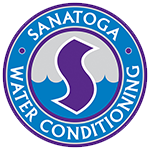Hardness
Hardness is usually caused by the presence of calcium and magnesium in water. They can combine with soap to form a scum on water and a ring around the tub. You may find larger amounts of soap are required to form washing suds.
What Do These Levels Mean?
While hardness does not cause any health effects it does contribute to aesthetic problem such as build up on pipes which can reduce water flow and pressure. It can also reduce the life of certain appliances such as water heaters, dishwashers and washing machines. Calcium and magnesium analysis can be used to calculate the hardness.
The most widely accepted definition of hardness is based upon The United States Geologic Survey and is as follows:
Soft O – 3.5 grains per gallon Moderate 3.5 – 7.0 grains per gallon Hard 7.0 – 10.5 grains per gallon Very Hard 10.5 and over. Hardness can be reported as grains per gallon or in milligrams per liter. To convert milligrams per liter into grains per gallon simply divide by 17.1. To convert grains per gallon into milligrams per liter simply multiply by 17.1.
How Do You Test For Hardness?
There are a variety of testing methods that can be performed in the field including a titrimetric test using EDTA until a blue colored endpoint is reached. This is a standard method, which is often an approved method for certified analysis. You can also analyze for calcium and magnesium and use the values to calculate the hardness levels.
How Do You Treat Hardness?
The most common method for treating hard water is using ion exchange also known as a water softener. This method utilizes a tank, which contains resins designed to trap ions. These resins are charged with sodium chloride, which are exchanged for the magnesium and calcium ions. This is a cost-effective way to treat water for hardness and has some additional benefits, such as savings in soap and detergents. Since some people have concerns about their sodium intake and softeners will contribute some amount of sodium chloride into the final water, you can also use potassium chloride to regenerate the resin.
There are other technologies, which also offer salt-free solutions. While these newer technologies are not as thoroughly tested and proven, they offer other solutions which seem promising.
Contact Sanatoga Water Conditioning To Learn More Or To Schedule A Consultation.
Your Neighbors Love Their Cleaner, Safer, Better Water!
Our dedication to our customers is continually rewarded with referrals and testimonials about our water quality solutions!
